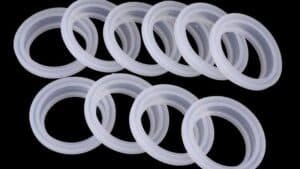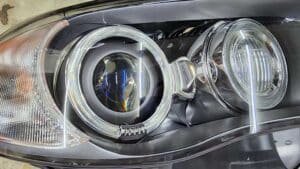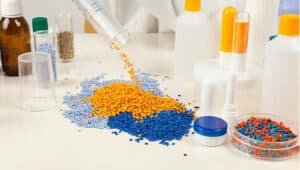What is Electrical Plastic Molding?
Electrical plastic molding, also known as electrical injection molding or electronic injection molding, refers to the specialized use of plastic injection molding techniques to produce components designed for electrical and electronic applications. This process involves melting thermoplastic or thermoset materials and injecting them into precision-engineered molds to form parts that meet stringent electrical insulation, mechanical strength, and dimensional accuracy requirements.
Is Plastic Molding Right for Your Electronics?
When designing electronic products, one question looms large: Is plastic molding for electrical applications suitable for your project? The answer often hinges on the need for precision, durability, and scalability. Electronic injection molding excels in crafting lightweight, intricate components that meet the stringent demands of modern electronics. However if your electrical products is low-volume, the injection molding will be not cost-effective.
Advantages of Electrical Plastic Molding
The benefits of electrical plastic molding are numerous, making it a preferred choice for electronics manufacturers worldwide. Here are the key advantages, each contributing to its dominance in injection mold manufacturing:
- Cost-Efficiency: Electrical injection molding streamlines production by creating parts in seconds, reducing labor and material costs. That means lower per-unit expenses.
- High Precision and Consistency: Injection molding mold parts are produced with excellent dimensional accuracy, ensuring components fit and function perfectly within electronic assemblies.
- Material Versatility: A wide range of thermoplastics and thermosetting plastics with tailored electrical, thermal, and mechanical properties can be used.
- Design Flexibility: Injection molding process accommodates complex geometries and functional design. Such as integrate features like snap-fits or hinges.
- Lightweight Durability: Materials used in plastic molding for electrical applications, such as polycarbonate, offer strength without weight, enhancing device portability without compromising resilience.
- Electrical Insulation: Thermoplastics like nylon provide excellent insulation, critical for preventing electrical shorts in components like connectors or circuit board housings.

Types of Electrical Plastic Molding
There are several molding processes used in the production of electrical plastic components. Each process is suited to different materials, part designs, and performance requirements. The main types include:
Injection molding
This process injects molten plastic into a closed mold cavity under high pressure. It is widely used for electrical housings, connectors, and covers because it allows consistent quality and complex shapes to be produced efficiently.
Compression molding
In this method, preheated thermoset material is placed into an open, heated mold cavity. The mold is then closed and pressure is applied to form the part. It is commonly used for electrical insulation components that require high heat and chemical resistance.
Transfer molding
Similar to compression molding, the material is first placed in a chamber and then transferred into the mold cavity through runners. This process is suitable for small, intricate electrical parts that need dimensional accuracy and reduced internal stress.
Insert molding
Metal parts such as terminals or threaded inserts are positioned in the mold, and then plastic is injected around them. This process combines electrical conductivity with plastic insulation in a single component, often used for plugs and connectors.
Overmolding
In this technique, one material is molded over another, typically a rigid plastic core with a softer outer layer. It provides improved sealing, shock absorption, or grip for electrical devices such as cable joints or switch covers.
Applications in the Electronics Industry
Plastic molding electrical processes are integral to manufacturing a broad spectrum of electronic components. Common applications include:
Connectors: Critical for establishing electrical connections, molded connectors require precise dimensions and excellent insulation.
Housings and Enclosures: Protective casings for devices such as smartphones, computers, and household appliances rely on injection molding for durability and design flexibility.
Switches and Outlet Covers: Components like switch panels and socket covers demand high-quality surface finishes and electrical safety.
Battery Parts: Battery casings and insulating components benefit from plastic molding’s electrical insulation and mechanical protection capabilities.
Cable Management: Items such as cable ties and conduits are molded to organize and protect wiring.
Buttons and Keypads: These require tactile precision and durability, achievable through injection mold manufacturing.
Automotive Electronics: Dashboard controls, sensors, and connectors are increasingly produced using electrical plastic molding due to the need for reliability and miniaturization.
Key Materials Used in Electrical Plastic Molding
The right material ensures injection molding mold parts meet stringent electrical, mechanical, and environmental requirements. Below are the key thermoplastics, thermosetting plastics, and conductive fillers used in electronic injection molding:
Nylon (Polyamide): Nylon is with exceptional mechanical strength, chemical resistance, electrical insulation, and wear resistance.
It is widely used in connectors, cable ties, insulating bushings, and gears within electronic devices.
Acrylonitrile Butadiene Styrene (ABS): It is with high toughness, impact resistance, and ease of molding, combined with cost-effectiveness.
ABS is used to shape rugged casings for keyboards, phone handsets, USB enclosures, and remote control bodies.
Polycarbonate (PC): PC is superior impact resistance, heat tolerance, transparency, and flame retardancy.
It is perfect for LED housings, laptop screens, safety covers, and optical disc casings.
Polyvinyl Chloride (PVC): PVC is with excellent electrical insulation, chemical resistance, flexibility, and inherent flame retardancy.
It is widely used in dominates in cable insulation, wire coatings, and electrical conduit fittings.
Polytetrafluoroethylene (PTFE): PTFE is with outstanding chemical resistance, low friction, high heat tolerance, and superior electrical insulation.
It is used in insulating tapes, high-frequency circuit board components, and wire coatings.
Precision Injection Molds for Electrical Components
From small batches to mass production, the injection mold manufacturing should tailored to custom solutions for connectors, casings, and more, tailored to your needs.
Molds for Low Volume Production
It is Made from aluminum or steel, fully customized for low-volume runs or prototypes with high precision. Such as custom connectors for electronics or medical device parts.
Medium Production Molds
Those molds use 2 or 4 impressions for 50,000–100,000 parts yearly, offering cost savings and reliability. They are ideal for electrical injection molding of switch bodies or appliance casings in dishwashers and washing machines.
High Production Molds
It is multi-impression molds with a sliding system for quick changes, built for high-volume runs. It is suited for mass-producing plugs, sockets, or circuit housings in refrigerators and consumer gadgets.
Partner with Zhongren for Your Project
Zhongren specializes in creating high-quality molds for electrical plastic molding, powering electronic devices and home appliances with precision components. Ready to start your next project? Contact us to get the custom plastic moulding for electrical solutions.





